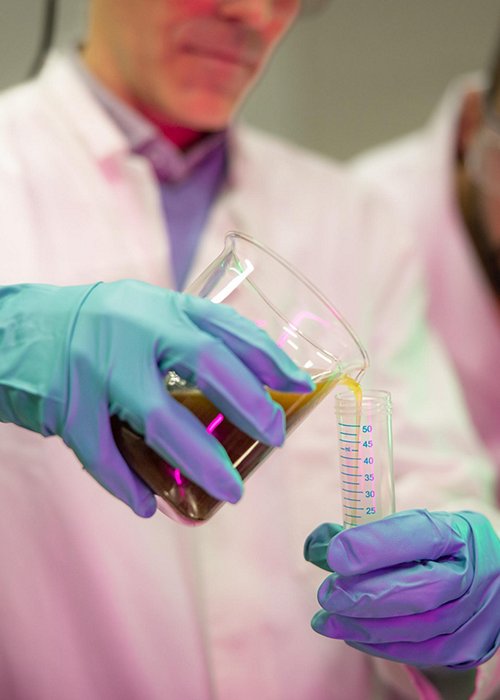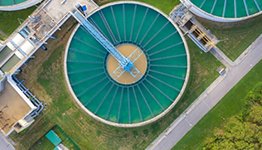Circular waste management is at the heart of our commitment to create resource-efficient growth. The Waste to Fuel (W2F) technology, developed at the Eni Research Centre for Renewable Energy and the Environment in Novara and tested in a pilot plant in Gela, allows us to enhance the energy potential of organic waste. This is done through a process that transforms the biomass feedstock into bio-oil and biomethane, recovering its natural water content. A phenomenon that nature performs over millions of years is repeated in a few hours: creating energy from biomass with fossil origins. The raw material for the process is the Organic Fraction of Municipal Solid Waste (OFMSW) and waste from the food industry. The bio-oil obtained varies from 3% to 16% depending on the composition of the feedstock, it can be used in blending as a low-sulphur fuel for maritime transport or refined to produce biofuels. The water recovered from the organic waste, up to 60% of its weight, is reused for industrial purposes.
Our Channels
enioilproducts
Your business, our energy
Produtcs and solutions for business and customers Italy and abroad






